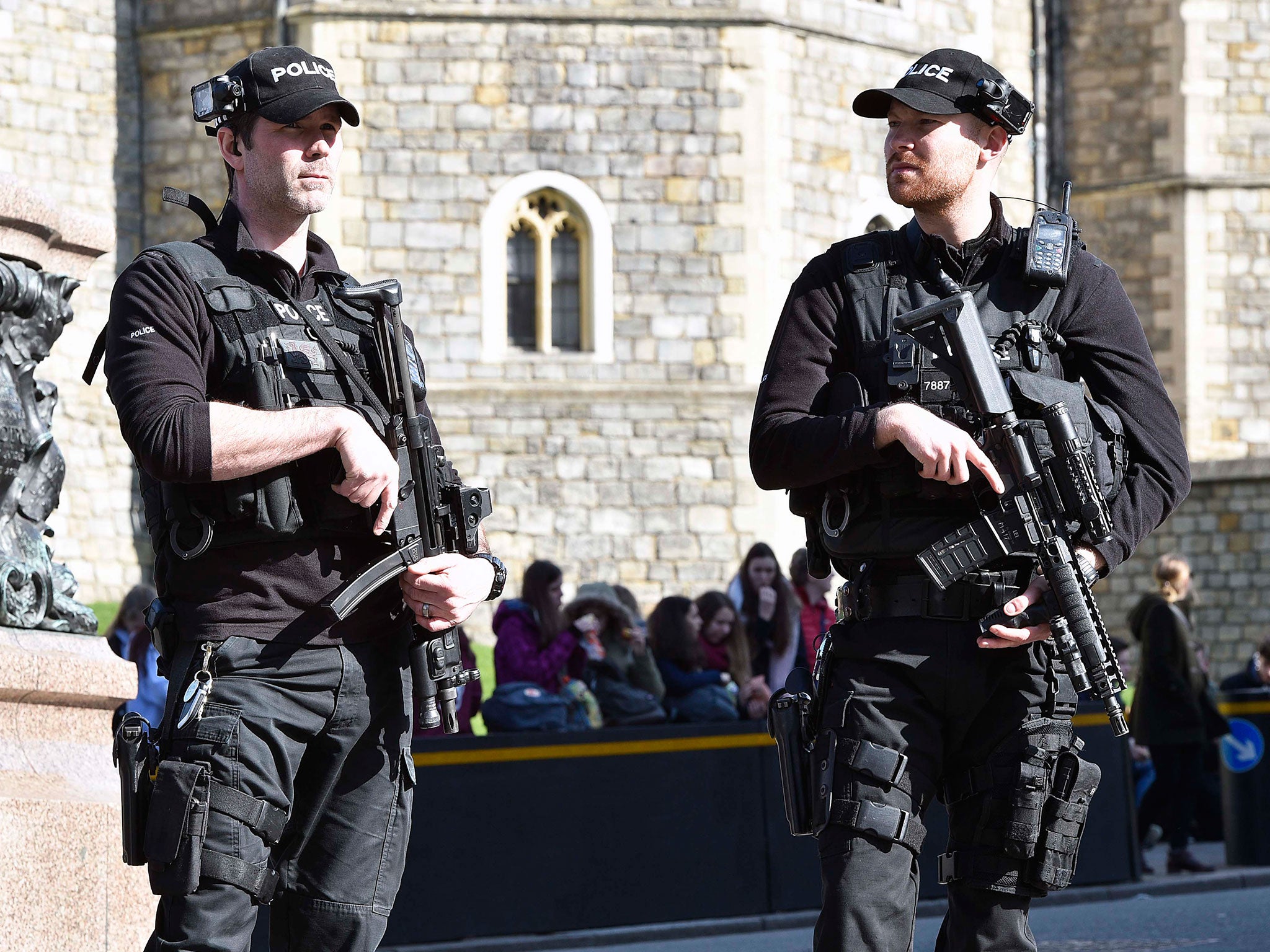Terror attacks and violent crime drive armed police operations up by fifth in a year
Home Office says firearms responses are 'last resort, considered only where there is a serious risk to public or police safety'

Rising terrorism and violent crime has driven the number of armed police operations up by a fifth to almost 19,000 in a year.
Officers only opened fire in 12 incidents in the year to March, which saw the three London Bridge attackers shot dead after they murdered eight victims.
The total number of firearms operations, which include precautionary patrols and calls from unarmed officers dealing with violent criminals, rose by 19 per cent to 18,746 in the period – the highest number since 2010/11.
The National Police Chiefs’ Council lead on armed policing, Deputy Chief Constable Simon Chesterman, said: “The threat from international terrorism and increases in violent crime have both contributed to an increase in the numbers of armed deployments.
“A significant proportion of these will be where armed officers have been deployed as a contingency, for example at public events where there are large crowds in order to keep people safe.”
The majority of incidents – 84 per cent – involved dedicated armed response vehicles (ARVs), which carry at least two specialist officers equipped with semi-automatic rifles, handguns, Tasers and other weapons.
Most operations took place in London, followed by the West Midlands and Yorkshire and the Humber.
Operations include deployment of armed officers to protect others from a person who has access to a gun or is “so dangerous that the officer’s use of a firearm may be necessary”.
As well as responding to the five attacks that struck London and Manchester last year, armed police have helped the arrest of plotters including an Isis fanatic who wanted to bomb Downing Street and Taliban bombmaker on his way to commit a knife attack in Westminster.
A Home Office statistical report said the number of incidents where police opened fire rose from 10 to 12 in the year, adding: “The use of firearms by the police is expected to be a last resort, considered only where there is a serious risk to public or police safety.”
The figures also revealed the number of armed officers increased by 3 per cent in the year to 6,459, following the start of a five-year government programme to increase firearms capability.
In May, officials revealed they were discussing the prospect of “routinely arming” officers in parts of the UK to respond to terror attacks and major incidents.
Police chiefs said the radical step was being considered for areas that cannot be reached quickly enough by ARVs, after a government recruitment target was missed.
DCC Chesterman said other alternatives, including increased funding and changed patrols, were being looked at to improve response times in rural regions like Devon and Cornwall.
David Cameron awarded £143m to boost national capability following the 2015 massacres carried out by Isis militants in Paris, but the number of counter-terrorist specialist firearms officers was around 100 short of target.
Although the number of ARVs, which are the first unit dispatched during a suspected terror attack, has increased by 25 per cent in England and Wales, they cannot yet cover all remote areas.
As well as the almost 6,500 regular police firearms officers, there are another 3,300 armed officers in the British Transport Police, Civil Nuclear Constabulary and Ministry of Defence Police, who can be deployed to support a major incident.
Around 90 per cent of British police officers are currently unarmed and a survey by the Police Federation found that only a third of members supported the idea of routine arming, although 55 per cent were prepared to carry a gun if ordered to.
Pressure from worried relatives and fears of being treated “like suspects” following fatal shootings are thought to be putting conventional police off applying for firearms roles, amid a continuing Home Office review into legal protections.
A Home Office spokesperson said that “where an operational need arises, specialist armed officers should be available to be deployed”, adding: “The policy in this country has long been that the police should not generally be armed and the number of police operations where firearms are discharged remains low – this is a testament to the training, skill and judgment of firearms officers and commanders.”
Subscribe to Independent Premium to bookmark this article
Want to bookmark your favourite articles and stories to read or reference later? Start your Independent Premium subscription today.
